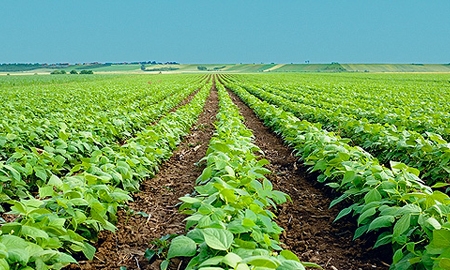With its vast fields of wheat and barley, sunflower, beets and other grain and oil crops, it is easy to understand how Ukraine gained its nickname of the breadbasket of Europe.
Ukraine is responsible for 60 per cent of world sunflower exports. It is the world’s top exporter of barley, a major supplier of wheat and also exports significant quantities of milk and meat.
Russia, Western Europe and China provide ready markets, and as global food shortages become an increasing problem, Ukraine is one of the few countries in the world that could be in a position to make a major contribution towards solving it.
However, to make that happen the country needs a state-of-the-art agricultural sector to enable it to become a major supplier of high protein-based foods. This will require the investment of large sums of money in new technologies and infrastructure, which can only be provided by a major increase in international and domestic investment into the agricultural sector.
"Our country can boast the highest potential for increasing the volume of agricultural production”
"We have a clear understanding
of the reforms necessary
in the agrarian sector to increase its pace and volume” Mykola Prysyazhnyuk,
Minister of Agrarian Policy
and Food |
Nobody doubts the huge potential of Ukraine’s fertile “black earth”, which once was used to produce 25 per cent of all agricultural output in the former Soviet Union. Blessed with around one third of the world’s humus-rich soil, some 54 per cent of Ukraine’s land is arable land – yet today only around half of it is being used for the cultivation of crops.
With sufficient investment, the agricultural sector could become the most profitable in the economy; currently, it accounts for around 25 per cent of Ukraine’s gross domestic product. Land reform and application of the latest farming technology would boost production both for exports and domestic consumption, and enable investors to reap enormous profits.
Ukraine’s government is keen to see production levels raised. “Our realistic goal, backed up by scientific and economic research, is to double the production of grain crops in the next three to four years,” says Mykola Prysyazhnyuk, Minister of Agrarian Policy and Food.
Indeed, analysts believe that with billions of dollars of investment Ukraine could double its annual harvests to around 50 million tonnes and over the next decade become one of the world’s top exporters of meats. Exports aside, there is also the potential for huge sales within Ukraine itself, given the size of the domestic market.
Unsurprisingly, almost all the world’s leading grain-trading companies are already represented in Ukraine and they are eager to see the sector liberalised and opened up fully to international trade. Mr Prysyazhnyuk says: “We have a clear understanding of the reforms necessary in the agrarian sector in order to be able to increase the pace and volume of agricultural production. We live in the country that can boast the highest potential for increasing the volume of agricultural production worldwide.”
He says the first priority for the government is the completion of its land reform programme, but he cautions that Ukraine cannot simply adopt the agrarian model of other countries.
The Minister believes the way forward is for large-scale production, farming and individual production to coexist and develop parallel to each other. “The combination of these three directions will enable us to fulfil the tasks we have set ourselves,” he says.
He acknowledges the need for administrative reform and the general creation of a favourable investment climate. Ratification of the free trade zone agreement with the EU would be a positive signal for potential investors. With a third of the population living in rural areas, labour costs are low; around a quarter of the workforce is engaged in agriculture or forestry, while agro-industry accounts for one-third of agricultural employment.
The EBRD and the World Bank believe Ukraine has the potential not only to significantly increase its grain production, but also to export more semi-finished and finished premium-quality food products.
They say the country could have a significant impact on the world food situation, while benefiting from significant gains in terms of export revenue, economic growth and rural development.
“With the right policies, levels of investment in agriculture can be increased and output can be increased significantly as well,” says Gilles Mettetal, EBRD’s agribusiness director.

0 COMMENTS